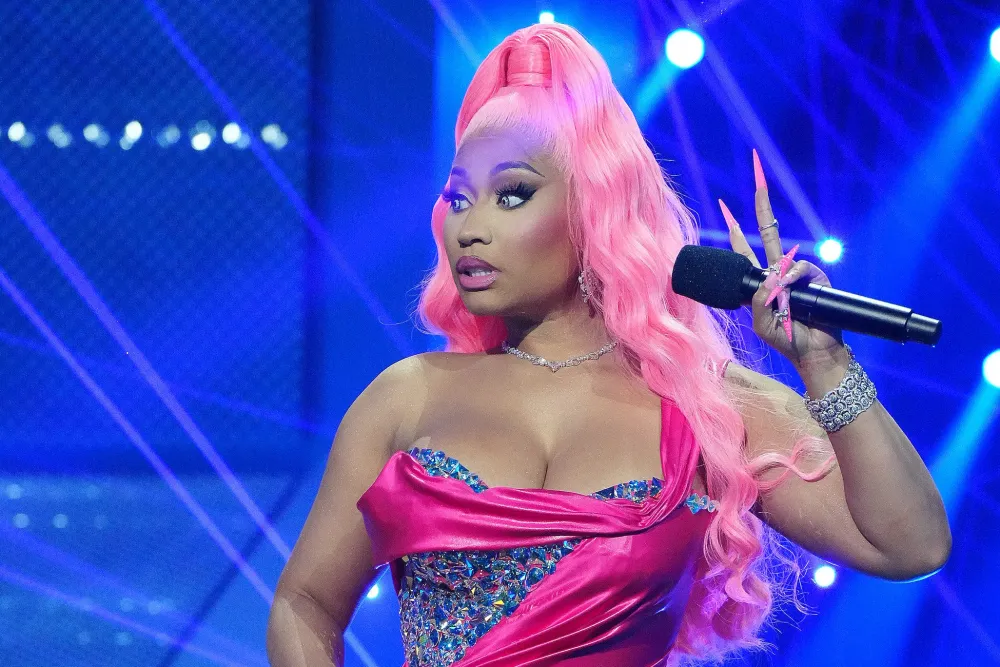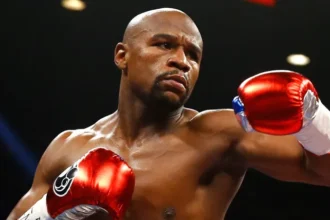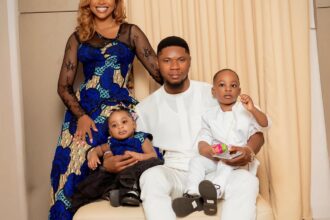
American rapper, Onika Tanya Maraj, popularly known as Nicki Minaj, has come under intense criticism from Nigerians on social media after she backed former U.S. President Donald Trump’s recent statement designating Nigeria as a “Country of Particular Concern” (CPC) over alleged persecution of Christians.
Minaj, who reposted Trump’s remarks on her X (formerly Twitter) page, expressed gratitude for the freedom of worship in the United States while supporting Trump’s claims that “Christianity is facing an existential threat in Nigeria” and that “Radical Islamists are responsible for this mass slaughter.”
“Reading this made me feel a deep sense of gratitude,” the rapper wrote. “We live in a country where we can freely worship God. No group should ever be persecuted for practising their religion. We don’t have to share the same beliefs in order for us to respect each other.”
Her comments, however, sparked widespread outrage among Nigerians who accused her of spreading misinformation and promoting a distorted image of the country. Many social media users argued that Minaj had little understanding of Nigeria’s complex socio-political and security landscape.
An X user, @Deji21_ø4, countered her remarks, writing: “I’m Nigerian. Feel free to visit Nigeria again and stop parroting every propaganda you read on the internet. The recent killings in the North Central region have nothing to do with a Christian genocide or religious-based killings. In fact, more Muslims are killed in total; however, the killings in Muslim-majority states like Kwara, Katsina, and Zamfara are ignored by Western media, while those in Plateau, a majority-Christian state, are selectively propagated as Christian genocide.”
He further explained that most of the violence in Nigeria stems from land disputes and criminal activities, not religious persecution. “The recent killings are by suspected herders of the Fulani nomadic ethnic group alongside local bandits, which has been remixed by Western and pro-Israeli Christians and some Eastern Nigerian Christians as ‘jihadist-motivated’—which is far from reality,” he said.
Another user, @Iam_jbless, criticised the rapper for wading into a complex national issue without sufficient knowledge. “Sit this one out, please. You have no idea about the intricacies of Nigerian national politics. In Nigeria, we have families where one parent is Christian and the other Muslim. So stay out of our national politics, because when Nigerians are caught up in endless killings, you’re safe in your own space,” he wrote.
He warned that Minaj’s endorsement of Trump’s statement could have serious diplomatic implications for Nigeria. “Nigeria needs weapons to fight insurgents, and this move will hurt Nigeria’s fight against these terrorists because the U.S. government will not sell weapons to us. This happened in 2014–2015 during the #BringBackOurGirls campaign. Did you know most of those girls were never recovered alive?” he added.
Similarly, @Kawugarba described Trump’s claims as both “misleading and dangerous.” He argued that such rhetoric only deepens divisions and misrepresents the true nature of Nigeria’s security crisis. “If you care about the truth, data, and statistics, you would know this is a fat lie. There is no ethnic or religious group being persecuted in Nigeria. What we have are Boko Haram terrorists, and they don’t discriminate; in fact, they attack and kill more Muslims while praying at mosques than any other faith in the country,” he said.
He also pointed out that the Christian Association of Nigeria (CAN) had repeatedly dismissed claims of an ongoing “Christian genocide.” “Nigerians, irrespective of religious coloration, are victims of Boko Haram terrorists. Over 70% of their victims are Muslim communities—those practising the same religion the extremist group claims to propagate,” he added.
Another commentator, @tairusi, accused the West of hypocrisy and complicity in global terrorism. He wrote: “Before you get ahead of yourself, do some research on who funds these terrorist groups all over the world. The answer is right where you are.”
Trump had earlier alleged that “Thousands of Christians are being killed” in Nigeria, adding, “When Christians, or any such group, are slaughtered like is happening in Nigeria (3,100 versus 4,476 worldwide), something must be done! The United States cannot stand by while such atrocities are happening in Nigeria, and numerous other countries.”
However, Nigerian analysts and civil society groups argue that the crisis in Nigeria’s northern and central regions is more complex than Trump or Minaj suggest. They attribute the violence to terrorism, farmer-herder clashes, poverty, and weak governance rather than religious persecution.
Security experts also noted that labeling Nigeria a “Country of Particular Concern” could harm its diplomatic relations and hinder access to critical military support from Western allies in the fight against insurgency and banditry.
A public affairs analyst, Dr. Philip Onyekachi, told Daily Blast that Trump’s narrative fits into “a long pattern of Western oversimplification of African conflicts.” He said, “The idea that there is a Christian genocide in Nigeria is false and dangerous. Boko Haram and bandit groups target anyone who opposes their ideology or resists their extortion—Christian or Muslim alike. These narratives only fuel mistrust between communities.”
Similarly, Professor Amina Bello, a conflict resolution expert, said that both Trump and Minaj were exploiting fear and religious sentiment for attention. “We have to stop foreign personalities from weaponizing misinformation about Nigeria. The violence in the North is not about faith—it’s about economics, land use, and state failure,” she said.
Many Nigerians online called on international celebrities like Minaj to verify facts before commenting on sensitive issues. As one user, @Efe_TheWriter, summed up, “If you want to speak about Nigeria, talk about corruption, poverty, and failed governance. But don’t let politicians use religion to divide a people who have always lived together in peace despite our challenges.”
As of press time, Nicki Minaj had not responded to the backlash, and neither the U.S. State Department nor the Nigerian Ministry of Foreign Affairs had issued formal statements regarding her post.
For many Nigerians, the controversy once again underscores the danger of misinformation and the need for more nuanced understanding of the country’s realities beyond Western media narratives.






